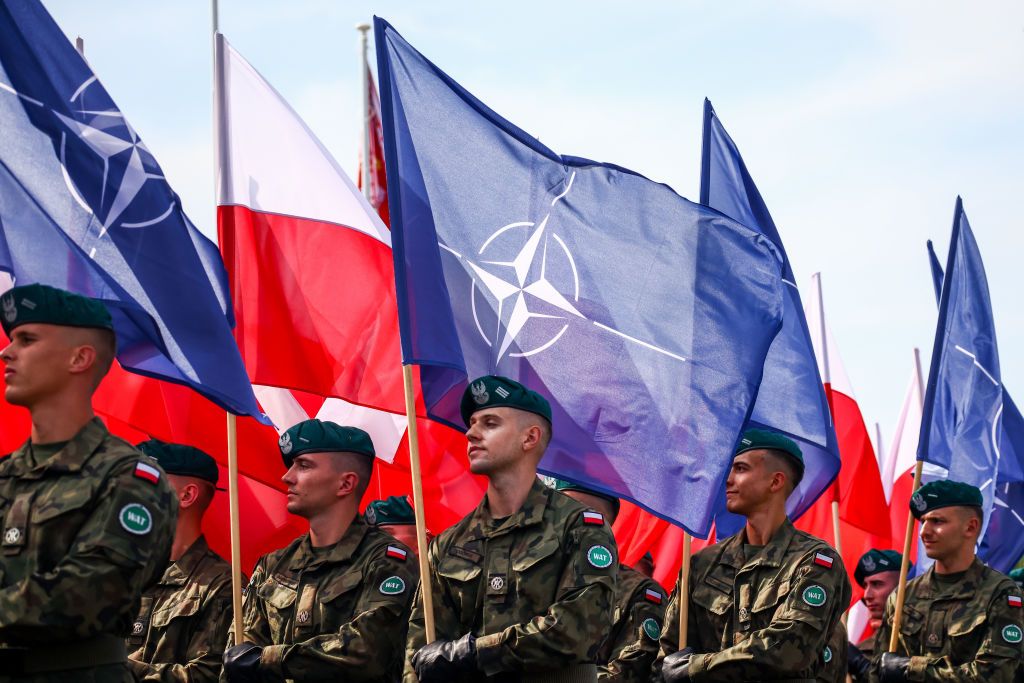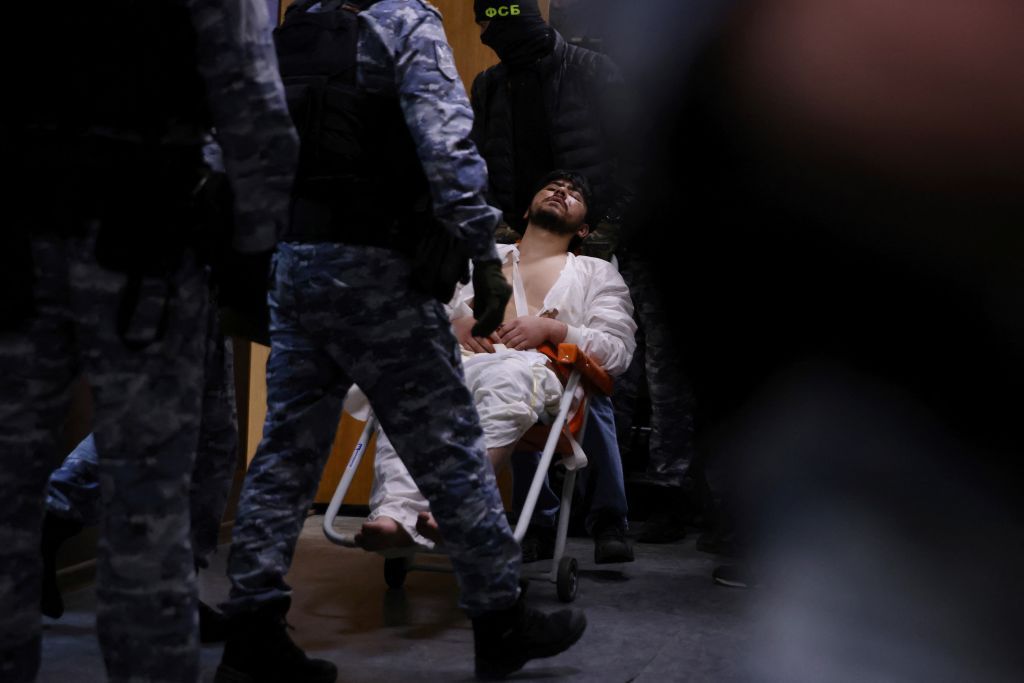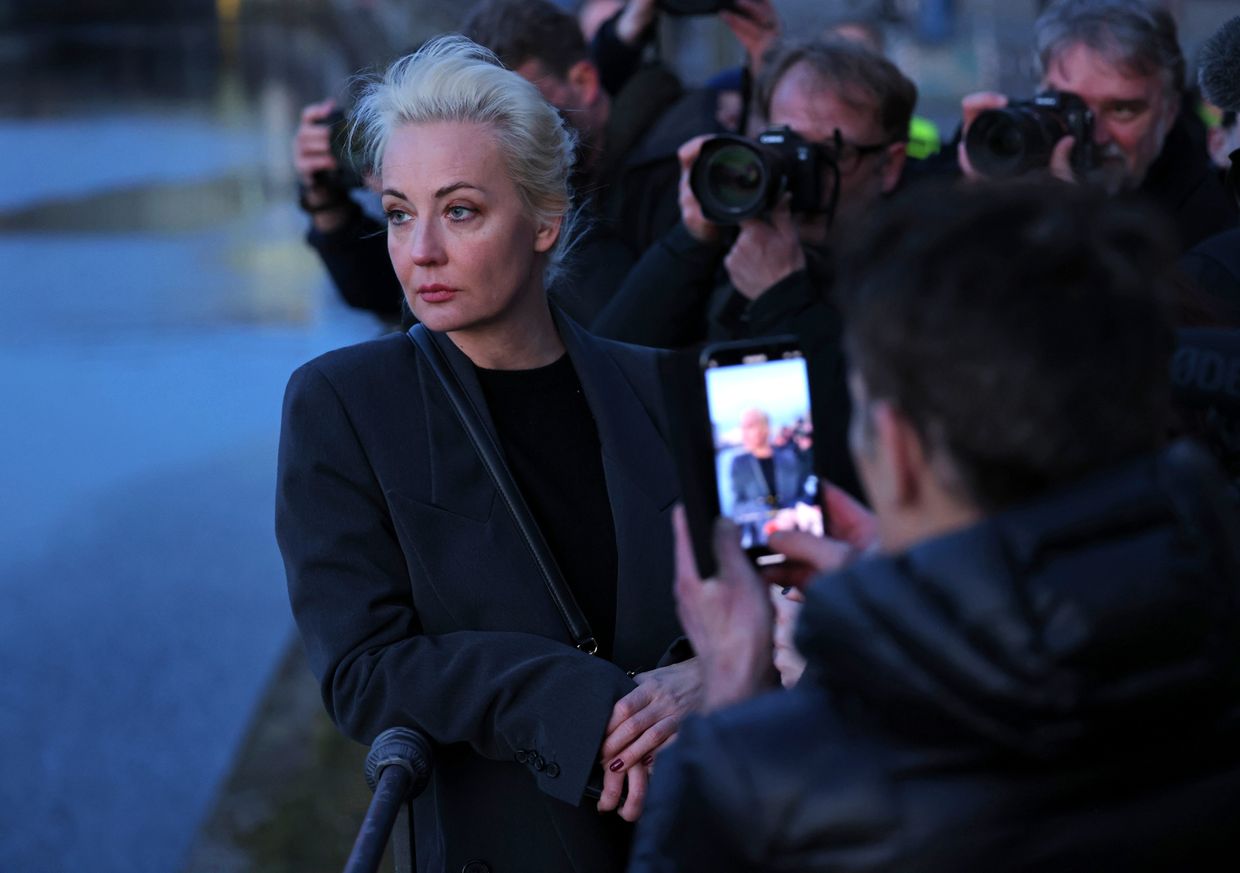Russia's wartime economy delivers growth, but will the bubble burst?
"What we have seen in the past two years is that you can achieve relatively high growth with enormous fiscal support. The problem is you are simply mortgaging your future," financial analyst says.

The Russian capital, Moscow, is preparing for the Victory Day parade on May 9, 2024. (Ulf Mauder/picture alliance via Getty Images)
A draft budget submitted to the Russian parliament last month has outlined the Kremlin's plans to keep spending high in its wartime economy, with ambitions to maintain the steady levels of growth the country has seen since its full-scale invasion of Ukraine in February 2022.
Surging government spending on war and defense production prompted the International Monetary Fund on Oct. 22 to increase its 2024 growth forecast for Russia to 3.6%.
The three-year budget, which plans to further hike military spending to post-Soviet record highs, shows Moscow's commitment to a long-war. But analysts warn that increased inflation and an ever-worsening labor shortage could see the tide turn on Russia's sanction-ridden economy.
"What we have seen in the past two years is that you can achieve relatively high growth with enormous fiscal support. The problem is you are simply mortgaging your future," Alexander Kolyandr, a financial analyst and non-resident scholar at the Center for European Policy Analysis, told the Kyiv Independent.
After rounds of Western sanctions sent shockwaves through the Russian economy following its invasion of Ukraine in February 2022, plunging the ruble by over 30% and driving up consumer costs by almost a fifth across the country, the Russian Central Bank introduced tight capital controls, swiftly moving the economy onto a planned wartime footing and allowing the Kremlin to spend its way out of a brief period of recession.
"Russia was simply in an extremely resilient position when the full-scale invasion began," said Janis Kluge, an expert on Russia's economy with the German Institute for International and Security Affairs."
Combined with record revenues that oil and gas brought following the start of the all-out war, this windfall payment provided a safety net for the economy, giving Moscow the ability to increase its spending in certain industries which in turn led to growth in GDP, Kluge added.
The draft budget has outlined Moscow's ambitions to keep those levels of spending high in order to keep its wartime economy afloat. The planned total budget expenditure in 2025 will increase to 41.5 trillion rubles, up roughly 13% from 2024's 36.6 trillion. Of that sum, almost 41% will be spent on defense and security, outweighing the government's combined expenditure on education, healthcare, social policy and the national economy.
This sum not only highlights Moscow's readiness to continue its war of aggression with its Westerly neighbor, but also hints at the Kremlin's awareness that it could take decades to reconstitute its armed forces after nearly 3 years of costly fighting, Dara Massicot, a senior fellow at the Carnegie Endowment for International Peace, told the Kyiv Independent.
Though rather than that extra spending being funded by increased oil revenues, at times an almost sole driver of economic growth throughout the presidency of Vladimir Putin, the budget proposals make conservative estimates on oil and gas yields, expecting them to fall to 10.9 trillion roubles in 2025 down from 11.3 trillion roubles expected this year.


"We are now trying to minimize the impact of oil prices on the budget. The overall share of cash receipts from the sale of oil and gas in the treasury's income is decreasing. If a few years ago this figure was 35-40%, then in 2025 it should decrease to 27%, and in 2027 – to 23%," Russian Finance Minister Anton Siluanov told the state broadcaster RT Arabic last week.
But weaning the economy off its dependence on oil and gas revenues could take years, with the financial system still remaining highly vulnerable in the event of a sudden decrease in the oil and gas price, Kluge said.
"If the oil price were to go down, let's say to below $50 per barrel, this would already have a significant effect on the Russian economy. It would lead to a strong devaluation of the ruble, which in turn would cause more inflation in Russia," he added.
Inflation in Russia has remained high throughout 2024, with the annual figure slowing to 8.63% in August, down slightly from 9.05% in August. To combat these pressures, Russia's Central Bank has kept interest rates high, now set at an unprecedented 19%.
According to the prospective budget, much of the cash to fuel that extra spending will come from taxpayers, with hikes in both income and corporation taxes. A gamble that the Kremlin can currently afford to take after two years of overheating in the economy has led to a spike in living standards as well as record-low unemployment, Kolyandr said.
"Wherever you look, you see that people get more money, and they are now able to borrow more because yesterday you were a low-paid non-entity, and today you are a proud worker for a tank production facility," Kolyandr said.
In order to fuel its war, the Kremlin has been pumping money into its defense industry, offering thousands of new jobs at inflated salaries. According to President Putin, 520,000 new jobs have opened in the industry in the last 18 months, with social welfare payments for the birth of children and favorable mortgage rates offered to those who take up work in the sector.
In order to fuel its war, the Kremlin has been pumping money into its defense industry, offering thousands of new jobs at inflated salaries.
But even paying three or four times the average salary for the region, the push for more workers continues to run up against a critical shortage of labor across Russia, something analysts warn could beset the country's economy for years to come.
Figures show that Russia's unemployment rate has fallen approximately 2% since its invasion of Ukraine, reaching record lows of 2.4% in June this year, according to the Federal State Statistics Service (RosStat). With hundreds of thousands of men having been sent to war, and a further 650,000 people fleeing the country since February 2022, according to an investigation by The Bell, the country's decreased workforce and renewed anti-migrant rhetoric means there are few places left for the Kremlin to find more workers.
Anti-migrant campaigns have been steadily growing across Russia since 2021, said Alexander Verkhovsky, the head of the Moscow-based Sova Center, which monitors extremism in Russia. The war in Ukraine, as well as a number of terrorist attacks in the past year, including at a concert hall in Moscow in March that left 145 dead, have only further fuelled this sentiment, he added.


"The regime is changing, which opens up more possibilities for Russian nationalists," Verkhovsky told the Kyiv Independent, "because the regime needs more support from below due to the war, it has to give (those groups) more freedom of actions," he added.
The Russian State Duma is on course to adopt five more laws before December which will further toughen up legislation against migrants, a likely response to the will of the population, Kolyandr said, but only making the problem of labor shortages more acute.
"In some ideal world, they would love to import more people to join the labor force from abroad. But given the overall attitude in Russia towards non-white, non-Christian migrants, that would be a problem," Kolyandr said.
The Kremlin has instead outlined its intention for the economy to adapt to new, lower levels of unemployment whilst increasing its levels of productivity. This is unlikely to be able to overcome its shortage of workers, though, given the wide range of technological sanctions making it difficult for Russia to get its hands on the much-needed high-tech machinery, Kluge said.
"The cost of labor for companies is increasing a lot. For example, some retailers are trying to do more with things like digital cashiers. But at the same time, there are limits to this because of sanctions, because Russia is not able to acquire many of the machines that you would need to replace humans in production," he said.
All of this makes the long-term economic outlet potentially pretty grim for the Kremlin, analysts said, though much of that will depend on external factors such as the geopolitical situation and the global oil price.
What is clear, though, is that eventually, Russia will arrive at a point that pumping money into its economy will no longer be able to yield the returns it has over the last two and half years of war, Kolyandr said.
"Due to constraints in the economy, eventually you cannot invest in more production, you cannot hire more people. At a certain point, you increase your fiscal spending, but it doesn't lead to high economic growth," he said.
"It's like binge drinking. At some point, you drink another glass of wine, and it doesn't make you happier. It just increases your hangover the next day."













